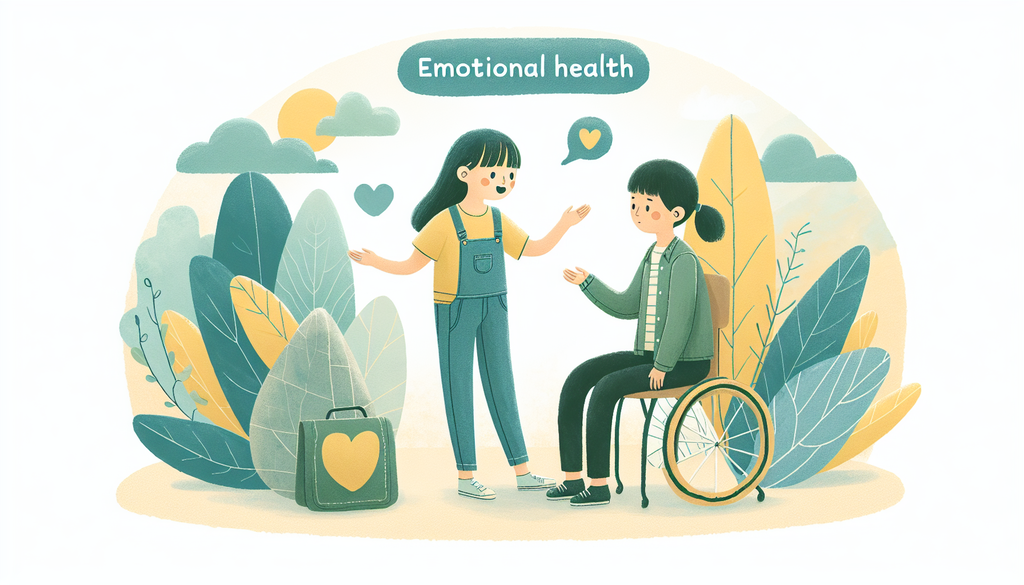The Role of Friendship in Emotional Health for Special Needs Children

Friendships play a crucial role in any child’s development. They promote a sense of belonging, teach vital social skills, and enrich happiness and self-esteem. For children with special needs, these relationships can wield an even more powerful impact. Building meaningful friendships can be life-changing, providing emotional support, strengthening resilience, and opening avenues for personal growth.
Many times, these children need a little extra assistance promoting such friendships. Parents, caregivers, and educators can be instrumental in fostering these connections and creating opportunities for bond-building. This inclusive approach not only benefits the child but also promotes a culture of understanding and acceptance, teaching peers about empathy and compassionate interaction.
Understanding the Impact of Friendship
Children tend to thrive in the company of peers — laughing, playing, learning, and growing together. For special needs children, these companions provide emotional anchors, significantly influencing their social development and emotional well-being.
Sometimes, children with special needs may feel alienated or misunderstood by their peers. Building friendships with both neurotypical children and those with similar experiences can help them feel more accepted and less alone. Friendships can also bolster self-confidence, enhance communication skills, and foster important life skills such as cooperation and compromise.
Friends learn from each other, too. They can contribute significantly to each other’s social and emotional learning by sharing unique perspectives and experiences. This no doubt extends to friendships with special needs children, whose strength, creativity, and joy can greatly enrich their peers’ lives, promoting empathy, understanding, and respectful interaction.
Facilitating Friendships for Special Needs Children
Promoting friendships requires a proactive approach. It involves creating conducive environments, providing support, and guiding children through their social interactions. Here are some actionable tips for parents, caregivers, and educators:
-
Fostering Social Skills: Social skills form the foundation of any friendship. Teaching these skills directly or indirectly, through play-based activities or structured social skills groups, forms a vital part of promoting meaningful friendships. Our earlier post on “Embracing Complexity: Intellectual Stimulation for Gifted Children” provides some helpful activities that can aid in this aspect.
-
Encouraging Peer Interaction: Providing opportunities for children to interact with their peers helps in laying the groundwork for healthy friendships. This includes integrating them into group activities, play dates, extracurricular activities, and social gatherings, as detailed in our post on “Championing Inclusivity: Accessibility in Extracurriculars”.
-
Creating a Supportive Environment at School: Schools play a critical role in nurturing friendships. Teachers can facilitate this by creating an inclusive atmosphere in the classroom, incorporating cooperative learning strategies, and fostering effective communication between peers. For more insights, read “Effective Classroom Strategies for Students with Autism”.
-
Promoting Understanding and Empathy: Fostering understanding and empathy among peers is crucial in ensuring children with special needs are not only included but also accepted. Educational sessions about disabilities or differences, children’s literature, and open classroom discussions can promote understanding and assist in developing empathetic relationships, as discussed in our post titled “Building a Home Library That Reflects Your Child’s Unique Needs”.
Final Thoughts
Friendships are a priceless aspect of life, offering love, support, fun, and memories. Children, regardless of ability or disability, deserve to experience the joy and growth that these relationships provide. By playing our part as parents, caregivers, or educators, we can bring forth an inclusive world that cherishes each child for who they are, paving the way for enduring and meaningful friendships.
Check out our previous post about “Peer Connections: Helping Your Child Build Friendships” for more tips on how you can help your child in their social endeavors.